|
Why is it that some children seem to be born with a predisposition toward a specific focus in life? My only explanation for this is that God makes it part of their DNA. Such was the case for Evan Roberts, a young revivalist from Wales with an unquenchable passion for the presence of the Lord. Born on June 8, 1878, he was part of a family of Calvinist-Methodists. I surmise that God intended this to be, so that his hunger for revival would be encouraged. As was the case with most men who lived in Southern Wales, Evan's father worked in the coal mines. When he was in a mining accident, Evan was taken out of school to work in the mines. However, his love of the Lord and of God's Word was the foundation upon which he built his life. His Bible went to the mines with him daily. He even shared a Scripture with the workers as they went down into the mine and encouraged them to meditate on it during the workday.
It was at age 13 that Evan had an encounter with God at his church named Moriah Chapel. He became obsessed with living a life that pleased the Lord and regularly asked himself the question, "What would Jesus do?" Evan's life as a teenager was marked by fervent prayer. His dedication to God and desire for intimacy with Him brought him spiritual power. He felt called to enter full-time ministry and focused his long prayers on asking God to bring revival to his Welsh community. He told the congregation at Moriah Chapel, "I have reached out my hand and touched the flame. I am burning and waiting for a sign." (Page 82, God's Generals by Roberts Liardon) On October 31, 1904, Evan's 13-year prayer burden was answered. He saw the fruit of his prayers through a revival that broke out among a group of young people who received Christ as their personal Savior. While the Holy Spirit was poured out in the southern part of Wales, God orchestrated revival in villages in north Wales. At Moriah, Evan shared his belief that God had promised to save 100,000 individuals. Revival meetings took place nightly. Those who attended the meetings were instructed by Evan to "Pray, believe, and wait." He also told them to pray a specific prayer: "Send the Holy Spirit now for Jesus Christ's sake." Revival spilled out on to the streets and into homes, workplaces, and shops. Many traveled from England and Scotland to participate in the Wales revival. The bulk of their meeting time was filled with singing. But Evan was convinced of the priority of prayer. He said, "We may sing all night without saving. It is prayer that tells, that saves, and that brings heaven down among us. Pray, friends, pray!" The consistent, fervent, unending prayers of a young man transformed the southern part of Wales and spread revival around the country and into others. Evan believed that the Holy Spirit of God would bring revival as the prayer bowls in heaven were filled. Oh, how I desire to see that conviction fall upon our nation! I believe that only the Lord can change the destructive path we are on and bring us back to the godly foundations from which we have fallen. Evan Robert would pray: "Bend the church and save the world. Bend me. Bend me." Let us join together in this prayer to fill the bowls in heaven so that they overflow and pour revival upon us. The eleventh month on the Hebrew calendar, Shevat, started one week ago. Tzadik is the letter in the Hebrew alphabet for this month and symbolizes "The Righteous One." Jeremiah prophesied the coming of the Righteous One in chapter 23 of his book. The chapter is titled "The Righteous Branch." "'I myself will gather the remnant of my flock out of all the countries where I have driven them and will bring them back to their pasture where they will be fruitful and increase in number. I will place shepherds over them who will tend them, and they will no longer be afraid or terrified, nor will any be missing,' declares the Lord. 'The days are coming,' declares the Lord, 'when I will raise up for David a righteous Branch, a King who will reign wisely and do what is just and right in the land. In His days Judah will be saved and Israel will live in safety. This is the name by which He will be called: The Lord Our Righteous Savior.'" (Jeremiah 23:3-6)
This description of our Savior as the Branch is quite interesting to me since on the fifteenth of Shevat the Jews celebrate what they call, "The New Year of the Trees" or "Tu B-Sh'vat." Rabbis used this date to determine the beginning of the agricultural cycle for Biblical tithes of fruit. The most important part of a tree's structure is its root system. The roots feed the branches that produce leaves and fruit. Their job, in addition to anchoring the tree, is to take in water and nutrients that help the branches grow healthy and strong and produce good fruit. That is why the location for a tree is critical. Farmers prepare their soil by adding organic matter to it. They may also look for a planting location near the water so that their trees can be well irrigated. Did you know that in the prophetic realm large, leafy trees represent powerful and prosperous kingdoms? (The Prophets Dictionary, by Paula A. Price, PhD) Chuck Pierce's book, When God Speaks, says that trees also represent people. Kingdoms are made up of people, each one making a contribution to their kingdom. As children of the Kingdom of Light, we must be rooted in fertile soil. Colossians 2:6-7 gives us directions on where to root. "So then, just as you receive Christ Jesus as Lord, continue to live your lives in Him, rooted and built up in Him, strengthened in the faith as you were taught, and overflowing with thankfulness." If we are rooted in Christ then we take in His love and righteousness and are destined to produce good fruit, "...fruit that will last." (John 15:16) We, as children of the Most High God, (El Elyon) are made in the image of the Lord, Our Righteous Savior. Why is righteousness so important? It means we are in right standing with God and conformed to His image. Our righteousness in God comes through faith in Jesus Christ. Our goal is to become like Him. It is available to us as it says in Romans 3:21-22. "But now apart from the law the righteousness of God has been made known, to which the Law and Prophets testify. This righteousness is given through Jesus Christ to all who believe." There is a promise in Mathew 5:6 for those of us who desire to be like our Savior. "Blessed are those who hunger and thirst for righteousness, for they will be filled." Are we firmly anchored in Him? Do we take in all the good He has for us? How productive are we? In this month of Shevat, let us be especially mindful of where we are planted, what we take in, and how we use what our Righteous Lord provides so that we can produce good fruit for the Kingdom of Light. God bless you. In the region of Moriah on Mt. Zion, two significant events took place. This spot, chosen by God, is one where burnt offerings were offered to Him. This type of offering gave off smoke that ascended to heaven. The purpose of the burnt offerings was to make atonement for the people and to present an aroma pleasing to the Lord. (Leviticus 6) Two individuals in the family line of Jesus were told to ascend the mountain for the purpose of giving God burnt offerings. We should note that since the location was on a mountain, one had to go up. Abraham, the Father of our faith, was the first one to ascend the mountain with his son Isaac. He had been instructed to offer his only son as a burnt offering. The Hebrew word for burnt offering used in this Genesis 22 story is "Olah." Rabbi Jonathan Cahn explains, "Olah is the whole offering because it ascends."
Years later, King David found himself in the same place where Abraham had ascended to present God with a burnt offering. David had committed a sin against the Lord by taking a census of his fighting men. A plague was sent to the land of Israel as a punishment for David's sin. Seventy thousand people died until God had mercy on them. David was instructed to "Go up and build an altar to the Lord on the threshing floor of Araunah the Jebusite." (2 Samuel 24:18) "David built an altar to the Lord there and sacrificed burnt offerings and fellowship offerings. Then the Lord answered his prayer on behalf of the land, and the plague on Israel was stopped." (2 Samuel 24:25) 1 Chronicles 22:1 tells us God's intention for this spot. "The house of the Lord God is to be here, and also the altar of burnt offering for Israel." The Jewish people who lived in Israel were required to "go up" to Jerusalem to present their offerings to the Lord at the temple built on this sacred spot. Scripture tells us multiple times that Jesus went up to Jerusalem to the temple. Ultimately, He would go up the mountain to become the very offering that ascended into the heavens. Actually, the entire life of Jesus was an "olah." Jesus did this by offering His life as a sacrifice. He died to His own will and gave Himself completely to Father God, becoming a forerunner for us. In King David's Psalm 24 there is a question that we should pay attention to: "Who may ascend the mountain of the Lord? Who may stand in His holy place?" The Passion Translation says it this way: "Who, then, ascends into the presence of the Lord? And who has the privilege of entering into God's Holy Place?" Here is the answer: "Those who are clean—whose works and ways are pure, whose hearts are true and sealed by the truth, those who never deceive, whose words are sure. They will receive the Lord's blessing and righteousness given by the Savior-God. They will stand before God, for they seek the pleasure of God's face, the God of Jacob." (Psalm 24:4-6 - TPT) Proverbs 30:4 also asks a question: "Who has ascended into heaven and descended?" (NKJV) The Hebrew word for ascended in this verse is "Olah." Jesus was sent to earth as an offering that would ascend into the heavens. He is our model for how to live life on earth—how to be an "Olah." He gave up everything to ascend as a whole offering. He was exalted as He bowed low. We are called to live as Jesus did, dying to the flesh and giving ourselves completely to God. It is the only way to go up! The Feast of Tabernacles, which begins tonight, is a time of remembering God's faithfulness to the children of Israel while they were in the wilderness. Yet this celebration is also for remembering how the Lord brought them into the Promised Land. The sukkah (a temporary dwelling made of broken branches) represents their wilderness journey. However, fruit is present in the branches to represent what was to come in the Promised Land. We could look at this time as one that joins together the wilderness with the Promised Land. Rabbi Jonathan Cahn says that the celebration of the Feast of Tabernacles is a joining together of the wilderness with the Promised Land. We, as children of God, could say heaven and earth are being joined together. How appropriate that Jesus taught His disciples to pray, "Your Kingdom come, Your will be done, on earth as it is in heaven." (Matthew 6:10)
For God to have more intimacy with us (His greatest desire) there needs to be a connection between heaven and earth. That is one of the reasons that the Lord set up times and seasons for special meetings with Him. All of His feasts come to a culmination during the Feast of Tabernacles or Sukkot. The name of this feast should draw us back to the first time God spoke to Moses and instructed him and the Israelites to construct a tabernacle for Him where He would dwell in their midst. (Exodus 25:8) The Hebrew word "Shakan" means to dwell. The first time this word appears in Scripture is in Genesis 3:22-24. God had to bar Adam and Eve from the Garden of Eden after their sin, so He placed cherubim at the entrance. They were to dwell at the entrance to guard the way to the Tree of Life. In this case, the dwelling of the cherubim was an act of kindness. The desire of God to dwell with His people is shown in many places in the Bible. Exodus 29:45-46 says, "Then I will dwell among the Israelites and be their God. They will know I am the Lord their God, who brought them out of Egypt so that I might dwell among them..." God calls the place where He abides with His people the "dwelling for His Name." (Deuteronomy 12:11) The prophet Joel ends his book with a statement that tells us where God will dwell with His people on earth: "The Lord dwells in Zion!" (Joel 3:21) The tabernacle was the temporary structure where God dwelt with His people. Once Israel settled in the Promised Land, they build a permanent structure called the Temple. This edifice was built by Solomon, and God instructed Israel to walk in His statutes and keep His commandments so that He could live among them. He said, "And I will live (dwell) among the Israelites and will not abandon my people, Israel." (1 Kings 6:13) As explained by Psalm 74:7, the Lord's instructions were not followed. "They defiled the dwelling place of Your name." This did not stop the Lord's pursuit of His people. He is compelled to draw near to us. Look at Zechariah 8:3. "I will return to Zion and dwell in Jerusalem..." The prophets consistently declare that God will dwell among His people. Isaiah 7:14 explains the great lengths that God goes to for intimacy. "Therefore, the Lord Himself will give you a sign: The virgin will conceive and give birth to a son and will call Him Immanuel," meaning God with us. The gospel of John brings clarity to this: "The Word became flesh and dwelt among us..." The Feast of Tabernacles is our reminder of God's great desire to dwell with us. Jesus/Yeshua is the tabernacle of God among us. He desires to tabernacle with us. He encourages us to use this season as one to sit in His presence and dine from His table of delights. John 14:23 takes us back to what God said to His children in the wilderness. "...Anyone who loves me will obey my teaching. My Father will love them, and we will come to them and make our home (dwelling place) with them." Not only are we meant to dwell with the Lord, but we are a dwelling place for His Holy Spirit. Let us use this week called The Feast of Tabernacles to connect with the Lord by setting aside time to contemplate His goodness, listening for His words of affirmation, and celebrating that He is, indeed, God with us, "Immanuel." The Hebrew calendar is one to encourage the culture of the Kingdom of heaven here on earth. It brings to our attention weekly, monthly, and yearly seasons of rest and times to connect with the Lord. These times are meant to bring us closer to Him. To do this, we must set priorities and need to ask ourselves, "What is my highest priority?" How intentional are we at setting aside special times to seek greater intimacy with the Lord? We have an opportunity this evening at sundown to join with our Jewish brothers and sisters in the celebration of the New Year 5783. After all, we have a common history with them. In Leviticus 23 we find a list of the Feasts of the Lord, and we are told in verse 4, "These are the Lord's appointed festivals, the sacred assemblies you are to proclaim at their appointed times." We also see throughout the New Testament that Jesus kept these feasts.
The spring feasts are a reflection of the Messiah's appearance on earth and His death and resurrection. The late spring feast demonstrated the power of the Holy Spirit as He poured it out on those who were gathered in Jerusalem. The fall feasts are thought to be the time when Messiah will return to earth to fulfill the Feast of Tabernacles. He will come for the pure and spotless bride called The Church and take her to heaven for eternal fellowship. Rosh Hashanah means "Head of the Year" and is also referred to as the Feast of Blowing (Yom Teru’ah) or Trumpets. It begins on the first day of the seventh month on the Hebrew calendar called Tishri. For two days sacred assemblies take place, and the shofar (ram's horn) is blown 100 times each day. It is thought to be the day that God created the world and announces the beginning of the fall feasts and what is called "The Ten Days of Awe." These days are meant for self-examination and repentance, prayer and fasting. From Biblical times, these ten days have been set apart as a time for preparation of Yom Kippur or The Day of Atonement. The Israelites would gather as their High Priest went into the presence of the Lord in the Holy of Holies, the innermost sanctuary of the Temple. Here he would present sacrifices and prayers to the Lord on their behalf. During the final celebration, the harvest of the fields is brought in, booths are built for families to live in for seven days so that they are reminded of God's care for their ancestors in the desert, time is set aside to rest and fellowship, and offerings of thanksgiving are brought to the Lord. In the book The Messianic Church Arising by Robert Heidler, the yearly feasts are called a "Cycle of Blessing." Robert writes, "The fall feasts provide the pattern for revival for any individual or nation. The fall feasts were given to create a pathway into God's glory." Here is what each feast is meant to do: The Feast of Trumpets: A wake-up call The Days of Awe: A time for seeking Him The Day of Atonement: A day to be restored The Feast of Tabernacles: A week to experience glory Robert continues. "...I believe Tabernacles is the key feast for the church today. We live in a day when God wants to draw us into His presence in a unique way. It is a time for His power and blessing to be poured out. He wants us to experience His glory." Our wake-up call comes this evening. We are being called into a new season. We are being called to awaken. God is ready to meet us. Are we ready to meet Him? We can join our Jewish brothers and sisters in the Spirit by remembering our blessings, confessing and repenting of our sins, and bringing the Lord a sacrifice of praise and thanksgiving. This will set us on a path of blessing for the new year. The word "kadosh" in Hebrew is holy. Its meaning is sacred, devout, pure, spotless, and untainted. To be holy requires one to be set apart and separated from the typical pattern of life. From the beginning, it was God's desire to have a special people that were separated unto Him. He began to implement His plan through Abram. (Later Abraham) In a divine encounter, Abram was instructed to "Leave it all behind.” and "Follow me." (Genesis 12:1-2 - TPT) God gave him a promise if he would follow Him. "I will make you into a great nation, and I will bless you; I will make your name great, and you will be a blessing. I will bless those who bless you, and whoever curses you I will curse; and all people on earth will be blessed through you." (Genesis 12:2-3)
Later, a covenant was made between God and Abraham as the meaning of being separated from the other nations became clearer. The covenant required that every male be circumcised. This would be a physical sign of separation. The people God called to be separated from other nations became known as the Israelites. After they were rescued from slavery in Egypt, God gave them commandments and told their leader, Moses, "...Though the whole earth is mine, you will be for me a kingdom of priests and a holy nation." (Exodus 19:5-6) God set before the children of Israel commandments and laws to follow and put in place a tribe of people who would be consecrated to serve Him. In Israel there were twelve tribes. The tribe of Levi was separated out from the others. They owned no property, and dressed differently, and their daily provisions were supplied by the other tribes. The name Levi means joined or attached. Indeed, he and his tribe were joined to God and had the privilege of ministering in the tabernacle. Out of this tribe God called the priests (Cohanim) who were the sons of Aaron. Priests from this order would minister to the Lord and were the only ones chosen to minister in the Most Holy Place. We see levels of ministry or separation being formed. Each separation came with a cost. The people of Israel were taught how to live and knew they could not participate in the ways of the world. The cost for the tribe of Levi was that they had no inheritance and no land. They were expected to depend entirely on the Lord. Priests had additional requirements and instructions to abide by. When Rabbi Jonathan Cahn writes about these restrictions, here is what he says: "The greater the calling, the greater the separation. The greater the separation, the greater the limitations. But the greater the limitations and requirements, the greater the ministry, and the greater the blessing." Christians are called priests unto the Lord. Each of us is called to fulfill a unique purpose of God and His Kingdom. That means our separation to walk in our calling requires us to be distinctly different. We must separate ourselves from sin, the ways of the world, and the flesh. How do we view ourselves? We have been sanctified and consecrated to the purposes of the Lord. We have a different standard than the rest of the world. As members of His church, we are called the ecclesia, which means "called out ones." The only way for us to fulfill our callings is to separate ourselves from the expectations of the world. We must let God set the standard for our lives, a standard that requires holiness. Why would the sixth month on the Hebrew calendar be referred to as "a haven in time"? To answer this question, we must look back at the last two months, Tammuz and Av. The fourth month, Tammuz, is remembered as the time when the Israelites sinned by building the golden calf and worshiping it. Av, the fifth month, is known as the low point on the Hebrew calendar. It was during this month that the children of Israel decided to receive a negative report from the ten spies who searched out the Promised Land. Their sin of unbelief and negative confession put them under a curse. This has allowed Israel's enemies to destroy what they are attempting to build.
Now comes the sixth month—Elul. God is so in love with His children that it is painful for Him to be separated from them. Hence, Elul has been designated as the month of repentance, mercy, and forgiveness. Our Heavenly Father gives us an opportunity to repent for past sins so that He can extend mercy and forgiveness. And, He has decided to do this in a very personal way! He wants us to prepare ourselves for a face-to-face meeting with Him. The Jewish people say that this is the month that "The King is in the field." Most of the year the King lives in a palace, separated from his people. But during this one month the King left His palace to be with His people. He selected this time to set up His tent in the field of His people so that He could make Himself accessible to us. His heart is set on tabernacling with us, and, as a sign of this passion for intimacy, the Hebrew letter for the sixth month is Vav, which pictures a tent peg or nail. Let us take God's eagerness for connection with us a little further. His yearning for intimacy is the reason He sent Jesus to earth. "In the beginning was the Word, and the Word was with God, and the Word was God...The Word became flesh and made His dwelling among us." (John 1:1 and 14) The word dwelling is the word for tent or tabernacle. Jesus left His throne to live in our fields. For 33 years the King lived in the fields on the earth. He lived in a tent of mortal flesh during that time so that we could relate to Him more closely. He came to extend mercy and forgiveness and to show everyone what love looks like. Jesus did that by dying on the Cross, by allowing the nails to attach Him to that Cross and making a way for us to spend eternity with Him. That way is through repentance of our sins and acceptance of His offering to be Lord over our lives. We become His dwelling place forever as we receive Him into our hearts. The King's delight to walk in the fields with us is so strong and beautifully expressed in several passages in the book Song of Solomon. He calls to us as expressed in Song of Solomon 2:14. "...Show me your face, let me hear your voice." Song of Solomon 6:3 is actually a Hebrew acronym for "Elul." "I am my beloved’s, and my beloved is mine..." It is time for us to pursue the King as He comes to walk in our fields. We must open our ears to hear what He has to share about our fields as He guides us with wisdom and kindness. He wants to provide for every one of our needs. As it says in Matthew 6:33, "But seek first His Kingdom and His righteousness, and all these things will be given to you as well." The Lord is here to remind us of His love and desire for us. We must respond with open arms that welcome Him. This is truly "a haven in time." Have you ever thought of the verb "steward" in the context of pain, suffering, and sorrow? Bill Johnson, Senior Pastor at Bethel Church in Redding, California, taught me about this concept. In a recent sermon he preached after the death of his beloved wife, Beni, Bill spoke about the mystery of life and death and how it impacts our relationship with God. He made it clear that we cannot reevaluate what God is like because of loss. Mark 10:15 quotes Jesus: "Truly I tell you, anyone who will not receive the Kingdom of God like a little child will never enter it." Jesus affirmed child-like faith to His disciples. Bill explains living with mystery in relationship to childlikeness. "The inability to live with mystery is your resistance to childlikeness. It is childlikeness that gives us access to dimensions and realms of the Kingdom that you can't get any other way. Childlike faith trusts no matter what." Pain and loss, Bill says, presents us with an opportunity. "We only have one opportunity to steward a moment of pain." This word steward really caught my attention. The Merriam Webster dictionary defines the verb steward with the following words: manage, supervise, direct, handle, oversee, tend. I believe Bill is suggesting that we redeem our pain by directing it into a time of worship. He explains that the best way to mourn is through hope. Those of us who know Jesus understand that with Him there is always hope. He is the Redeemer! Let's look at Romans 5:2b-5. "And we boast in the hope of the glory of God. Not only so, but also glory in our sufferings, because we know that suffering produces perseverance; perseverance, character; and character, hope. And hope does not put us to shame, because God's love has been poured out into our hearts through the Holy Spirt, who has been given to us." God gave us His first and best gift—His Son, Jesus, as a sacrifice so that we could have everlasting life with Him. This poured out love is never ending. The best way for us to connect with His love is through worship. Worship expressed in difficulties and sorrow and during times of inexpressible pain is what puts us into His Presence. Bill says, "Answers don't fix the problem; Presence does." True worship presents the Lord with an offering that costs us something. Didn't Jesus model this for us? His pain and suffering on the Cross were unimaginable! He experienced separation from God and yet He trusted Him. His last words were, "Father, into Your hands I commit My spirit." (Luke 23:46) Jesus knew that His Father is always good and would use the seed of His death for a great harvest. We must follow HIs example by stewarding our moments of pain when they present themselves to us. We must embrace childlike faith and trust the Lord to redeem our pain. Remember, in heaven we will not be able to worship in pain. Bill says this "privilege" only comes on earth. He continues: "Worship is expressing joy in loss and celebration in pain. I must honor Him as the Healer that I know He is even when I do not see it. He does not owe me an explanation. I must give Him an offering that costs me." Job 13:15 begins, "Though He slay me, yet I will hope in Him..." We have a reason to embrace hope, as Bill explains. "Every loss and disappointment can become a seed that brings increase. God uses our crisis's to help us grow. Jesus takes our pain and loss and gives them to God. He will plant them and will be glorified by the blessing." Bill prayed a prayer for all of us: "May you be blessed with courage to lean into mystery and experience who He is as an unfailing, unchanging Father who is always good!" Amen! Romans 15:4 says, "For everything that was written in the past was written to teach us, so that through the endurance taught in the Scriptures and the encouragement they provide we might have hope." One of the distinct qualities of God's people is that they have hope. God sent His Word to plant that in us. The Bible is more than a book, as it tells us in John 1:1-5. “In the beginning was the Word, and the Word was with God, and the Word was God. He was with God in the beginning. Through Him all things were made; without Him nothing was made that has been made. In Him was life, and that life was the light of all mankind. The light shines in the darkness, and the darkness has not overcome it."
You may ask, "What is the purpose of the Bible?" I believe that one of the main purposes is to give us revelation of God's nature and character and His desire for relationship with us. His desire for intimacy with us is so great that He used the beginning of the Book to show us our sinful condition and His plans for redemption. Our need for a Savior is why He sent His perfect Son to redeem us. He assures us of His ability to enact His plan of salvation through the stories in the Bible that tell of His loving care and power to overcome the schemes of the enemy, and to set us on the right path for eternal life. A song written by Elevation Worship has inspired me and affirmed my hope in the Lord. It tells us how the world will never satisfy us but that His love overcomes our weaknesses and failures. While it is true that HIs love gives us hope, it is also true that His power is supernatural and changes our surroundings to give us access to God's Kingdom. Let's look at the words to the song, "Graves into Gardens." "I searched the world, but it couldn't fill me. Man's empty praise and treasures that fade are never enough. Then You came along and put me back together, and every desire is now satisfied, here in Your love. Chorus: Oh, there's nothing better than You. There's nothing better than You. Lord there's nothing, nothing is better than You. I'm not afraid to show You my weakness. My failures and flaws, Lord You've seen them all, and You still call me friend. 'Cause the God of the mountain is the God of the valley. There's not a place Your mercy and grace won't find me again. Chorus... Bridge 1: You turn mourning to dancing. You give beauty for ashes. You turn shame into glory. You're the only one who can. Bridge 2: You turn graves into gardens. You turn bones into armies. You turn seas into highways. You're the only one who can. You're the only one who can.” God's love for us and its accompanying power operate together to transform our lives. Declaring HIs power and love will change our atmosphere and bring about hope for the present and the future. "So, God created mankind in His own image, in the image of God He created them; male and female He created them." (Genesis 1:27) On this Mother's Day let us remember that God included special aspects of His personality in women. The characteristics of a "noble wife" are written about in Proverbs 31. These are to be demonstrated to a women's entire family. I would like to highlight a few to show the valuable contribution a wife and mother can make to the Kingdom of God.
A noble woman is "Clothed with strength and dignity....She speaks with wisdom, and faithful instruction is on her tongue. She watches over the affairs in her household and does not eat the bread of idleness...a woman who fears the Lord is to be praised." (Verses 25-27, 30) Mothers play countless roles for their families that require sacrifice on their part. Since they are first to connect with their children, they frequently have a stronger bond with them. They organize the day, including establishing routines, responsibilities, and disciplines. A mother's special role in the development of her children cannot be denied. Since she usually spends more time with the kids, it is easier for her to have an influence on them. By listening, teaching, and demonstrating her love for her children and husband she will impact their behavioral development. One of the key roles of a Christian mother, in my opinion, is to point her children toward Christ. She plays that role in teaching godly truths and giving the family a spiritual heritage. The apostle Paul pointed this out to his "dear son" Timothy: "I am reminded of your sincere faith, which first lived in your grandmother Lois and in your mother Eunice and, I am persuaded, now lives in you also." (2 Timothy 1:5) In a sense, mothers are spiritual gatekeepers of the family faith. On April 15, 2022, Tom and JoAnn Doyle wrote an extremely interesting article for "All Arab News" entitled, "Why are so many Muslims celebrating Easter this year?" They started their article by writing, "Did you know that one of the major threats to the religion of Islam today is the number of women who are committing their lives to Christ and leaving Islam?" They tell us that Jesus has not forgotten the women of Islam. He is appearing to them as "the man in the white robe" and identifying Himself as Jesus. He tells them that he has died for their sins and that He loves them. The love that Jesus imparts to these women compels them to pledge their allegiance to Him. When this happens, the entire family is impacted. As an example, the Doyles tell a story about a woman named Maha. (Cover name) She shared, "I could not wait to go to bed at night! I never felt this kind of love from my own father or from anyone else in my entire life." Maha has boldly embraced faith in Jesus despite the fact that her brother is a senior leader in Islamic State and has vowed to kill her. She has recently led seven of her family members to Christ and was baptized with them. The Doyles wrote that a women's "spiritual influence is a natural overflow of who God created them to be in the first place. The man may be called to lead the family, but a mother's influence is what marks a family." Because of these Christian women, the Doyles report the following: "Islam is in crisis. Whole families are jumping ship to follow Jesus." Let us praise God for these courageous women who have "become super spreaders of Jesus' message of love and forgiveness in the Muslim World." I would like to take this opportunity to express my gratitude to the Lord for giving me a mother who, along with my dad, oversaw my growth in the Christian faith. She will be turning 99 on May 18 and still carries the fragrance of Christ. May we all pray for our mothers and mothers around the world and ask God to help them display the qualities of a Proverbs 31 woman. Also, let us pray that the Muslim mothers who are boldly taking a stand for Jesus will be protected and empowered by the Holy Spirit. |
Joan E. MathiasCategories
All
Archives
July 2024
|
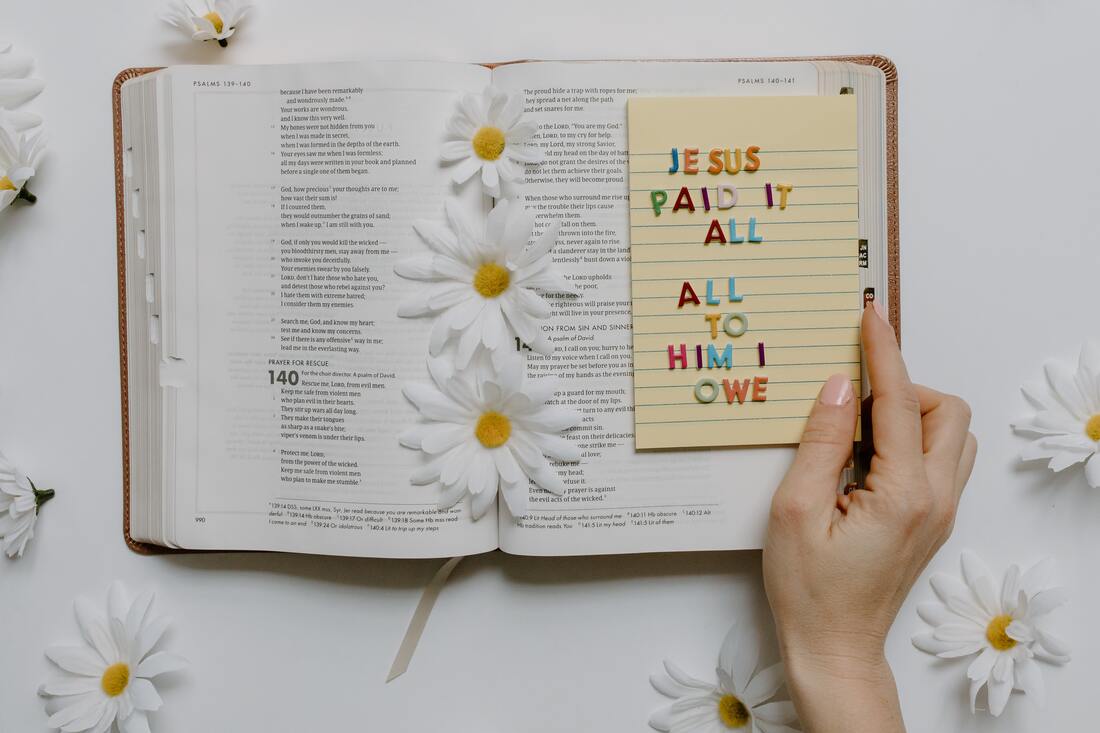

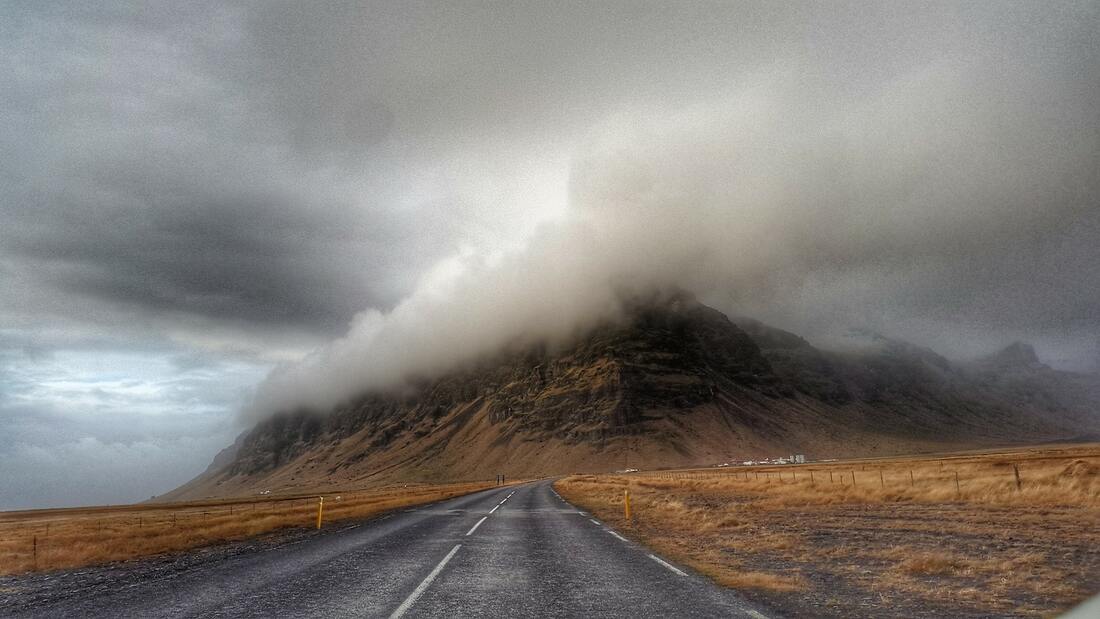
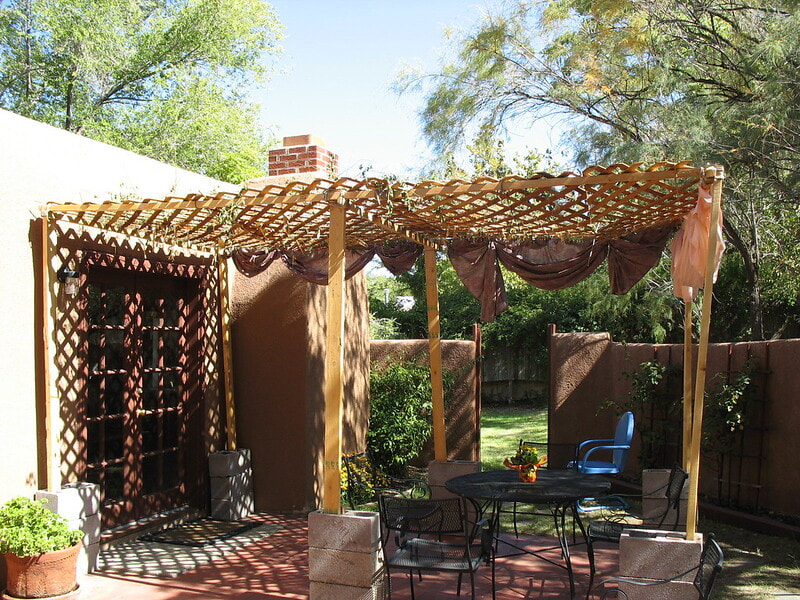

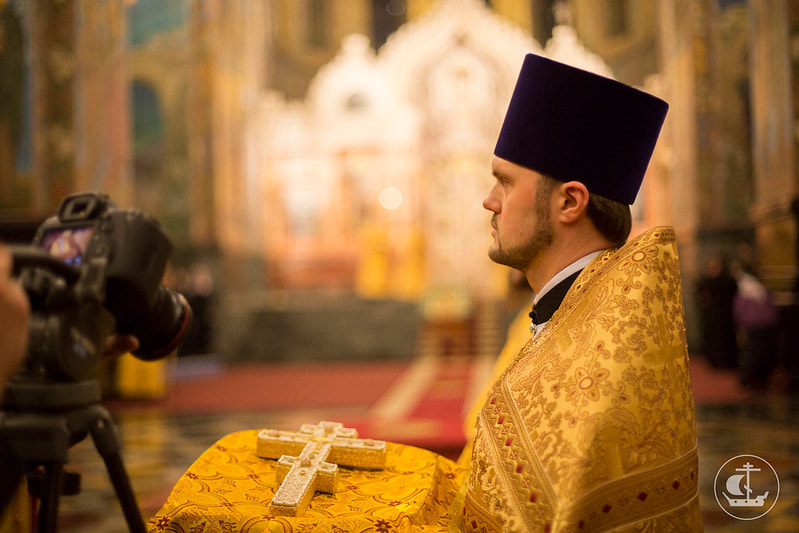


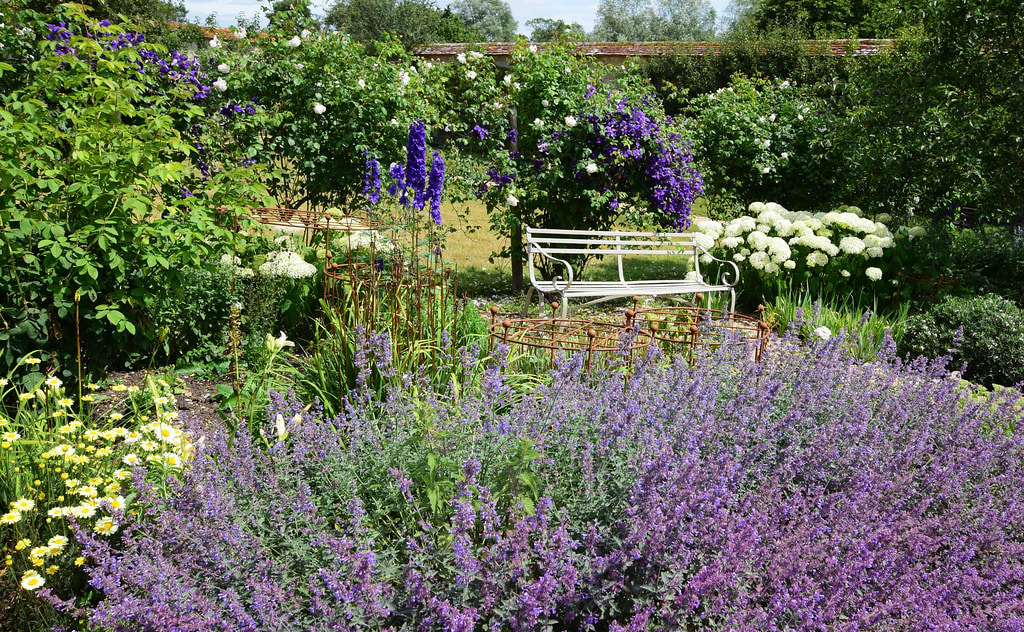

 RSS Feed
RSS Feed